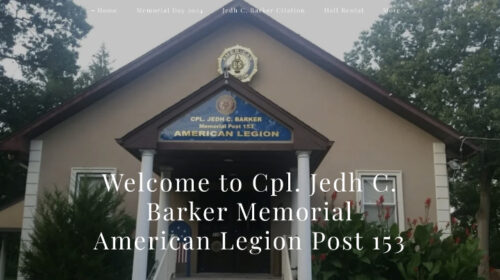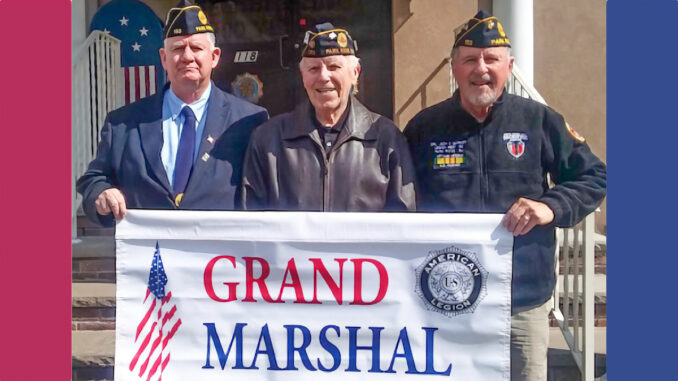
PASCACK VALLEY—Veterans Day, observed every year on Nov. 11, is a day set aside to honor all those who have served in the United States Armed Forces. Originally known as Armistice Day, the holiday commemorated the end of World War I, marking the signing of the armistice on the 11th hour of the 11th day of the 11th month in 1918. The name was changed to Veterans Day in 1954 to recognize not just those who served in World War I, but all veterans who have answered the call of duty.
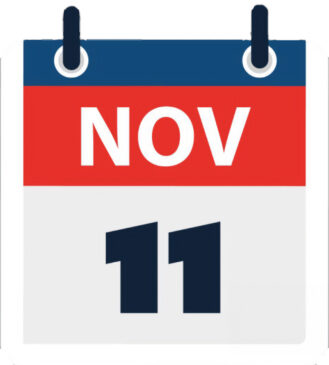
Many people confuse Veterans Day with Memorial Day. While both honor the military, Memorial Day focuses on those who died in service, especially in battle. Veterans Day, however, is a time to thank and celebrate all veterans—those who have served in times of war and peace, whether they are still with us or have passed on. It is a day to reflect on the contributions veterans have made to our national security and freedoms.
In the Pascack Valley, the memory of veterans is kept alive in many ways, but arguably none more actively than through the work of Richard Thomas “Dick” Bozzone, a United States Air Force security policeman in the Korean War and future commander of American Legion Post 153 in Park Ridge. Bozzone was deeply committed to honoring veterans, especially through community engagement and education. For many years, he contributed reflections on patriotic holidays to local papers, sharing his insights on the importance of remembrance. His voice resonated in our community, and even after his passing, his wife, Dot, has continued to ensure that his legacy lives on, particularly in their work with the American Legion and Post 153 and its satellites: Its Sons and its Women’s Auxiliary.
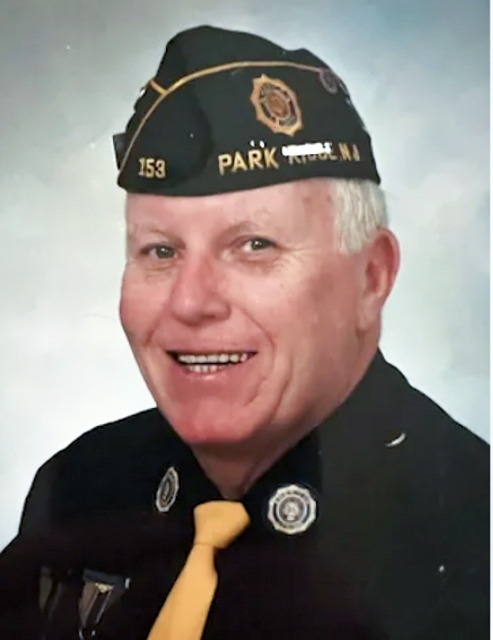
At Bozzone’s passing, in September 2023, Mayor Keith Misciagna eulogized him in part, “Dick was a loving and devoted husband to Dorothy ‘Dot’ Bozzone and blessed with two children and three grandchildren. He was also a member of the American Legion for over 65 years, transferring to Cpl. Jedh C. Barker Post 153 upon his move to Park Ridge, where he served as 1st, 2nd and 3rd vice commander of Post 153 before being elected commander in 1996.
“Over the years, he was instrumental in the organizing of the Memorial Day parade and the Patriots Day ceremony as well as other military ceremonies in town. He loved Park Ridge and the American Legion and no one loved his country more than Dick Bozzone. He served his country, the Legion and Park Ridge his entire life.”
Indeed, Bozzone’s service extended far beyond his time in the military. Under his leadership, Post 153 became a beacon of community involvement, hosting events that brought together veterans, families, and schoolchildren. Both he and Dot were passionate about involving young people in these observances, believing that it was not only a civic duty but also a privilege to teach future generations about the sacrifices made for their freedoms—values the Legion calls Americanism. Together they relished seeing schoolchildren take part in Veterans Day and Memorial Day (and Flag Day, Patriot Day, etc.) ceremonies, parades, and other activities, ensuring that the values of service, sacrifice, civic duty, and patriotism would be passed down to the next generation.
And, I note with industry pride, he was a fellow newspaperman.
Bozzone’s dedication to educating the young reflected his broader vision for the role of veterans in society. He saw Veterans Day not just as a moment for reflection but also as an opportunity for community engagement and learning. He often reminded us that the freedoms we enjoy today are a direct result of the service and sacrifice of those who came before. By involving children in these commemorations, he ensured that the lessons of the past would continue to shape the future.
The history of Veterans Day itself underscores the importance of memory and recognition. The holiday was briefly moved to the fourth Monday in October during the late 1960s as part of the Uniform Monday Holiday Act, which aimed to provide more long weekends for workers. However, this change was met with resistance, particularly from veterans groups, who felt that the historic significance of Nov. 11 should be preserved. In 1975, President Gerald Ford signed a law returning Veterans Day to its original date, ensuring that the connection to World War I’s armistice and the broader history of military service would be maintained.
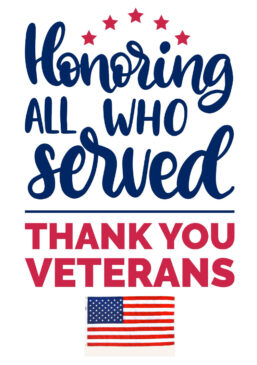
In our Pascack Valley, the legacy of veterans such as Bozzone lives on, not just through annual observances, but through the ongoing efforts of his wife, Post 153 under the command of Bob Oppelt, and the community at large. The post, which was founded as Pascack Memorial Post 153 in 1919 by veterans of the Great War, was renamed in honor of Marine Corporal Jedh C. Barker, a Medal of Honor recipient who gave his life in Vietnam. Under Bozzone’s leadership, and that of many others, the post continued to honor veterans from all conflicts, ensuring that their sacrifices were never forgotten.
As we celebrate Veterans Day this year, let us remember not only the history of the holiday but also the personal stories of those like Dick Bozzone who dedicated their lives to service—both in uniform and in their communities. His commitment to educating young people about the importance of Veterans Day and his tireless efforts to keep the memory of those who served alive in our community are a testament to the enduring power of remembrance.
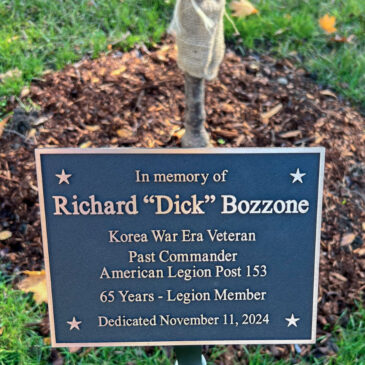
Bozzone often quoted the lines from the War Cemetery in Kohima: When you go home, tell them of us and say, for your tomorrow, we gave our today. This simple yet powerful message reminds us that the freedoms we enjoy today were hard-won by those who served.
As we observe Veterans Day, let us also follow Bozzone’s example—and those of us in the greater Pascack Valley who also served, or supported those who did, or lost dear family in honorable service—in teaching the next generation to honor and respect those sacrifices, ensuring that their legacy continues to inspire and guide us all.
Pascack Press editor John Snyder is a veteran of the United States Air Force. He was an enlisted aircrew member with a radar surveillance squadron in the Gulf War era.

